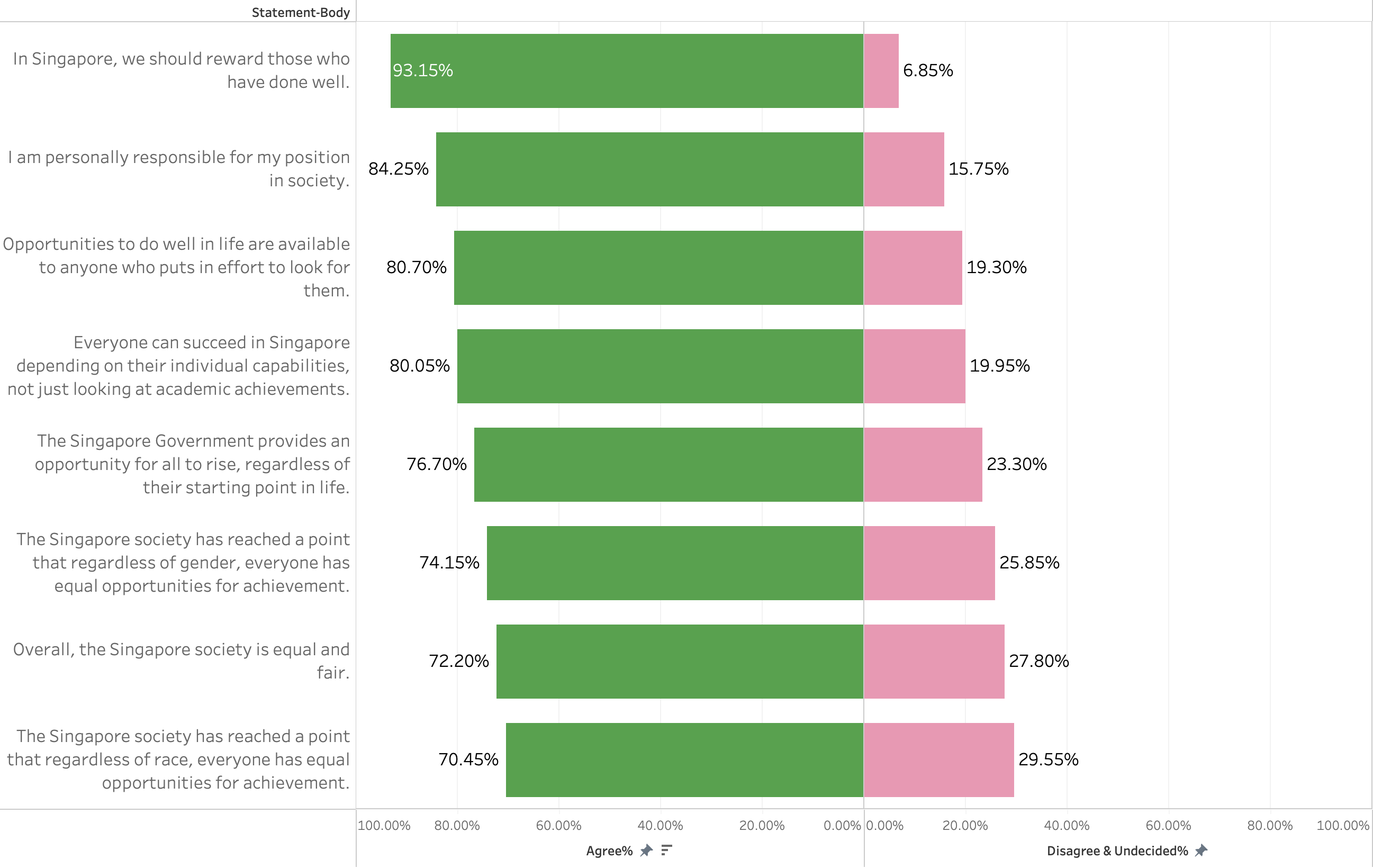Does Meritocracy work in Singapore?
Meritocracy is a concept that resonates strongly with most Singaporeans. It stands for justice, chances, and the potential for upward mobility. In essence, meritocracy speaks to the notion that someone's abilities are what matters when it comes to getting a job or promotion, rather than family connections, ethnicity, age, sex, or nationality. But in reality, the idea of meritocracy has taken on many different meanings in the eyes of many Singaporeans. OPPi conducted a survey of 2000 Singaporean respondents this month to gain insights into the nation's meritocratic system and the desired traits of a leader.

The survey revealed that mostSingaporeans believe strongly in meritocracy, and more than 9 out of 10 respondents said that people who have done well in society should be rewarded accordingly. More than 7 in 10 respondents felt thatSingapore society is equal and fair. However, respondents were less sure about racial equality when it came to opportunities for success. Respondents were also divided in their opinions that a person's family background will affect their chance of success in Singapore's society. This has resulted in a difference in beliefs between different age groups, with the younger age groups (18-25) having a lower belief that Singapore society is equal and fair compared to the older age groups.

For example, OPPi found that amongst HDB dwellers staying in one-to-three-room flats, 79% felt strongly that working hard is the way to be successful compared to the other dwellers. In addition, OPPi also discovered that more than 1 in 2 private dwellers and those living in larger flats believed that success is within their control and that there are other ways to succeed. OPPi's analysis suggested this could be due to differences in relative wealth, with private dwellers feeling more in control of their success as compared to HDB dwellers. This stark contrast between HDB dwellers and private dwellers demonstrates how inequality can exist within a meritocracy - even when people put in hard work and effort, and they may still not be able to access opportunities equally if their socio-economic background differs from others.

OPPi survey also asked questions regarding what respondents think makes an ideal leader in a meritocratic society like Singapore. An overwhelming majority felt that possessing good academic results was not necessarily indicative of being a good leader -instead, qualities such as care, empathy and understanding towards others were deemed much more important than intellectual capabilities. Furthermore, OPPi discovered that Singaporeans highly value integrity and courage in their leaders; they prefer someone who will make difficult decisions despite the potential pain involved (such as during times of crisis or austerity) rather than someone who follows the status quo or popular opinion. These findings suggest that Singaporeans look for leaders with strong moral fibre and conviction - something which is arguably essential for any true meritocracy to function properly.
Despite Singapore’s pursuit of a fair and just meritocracy, OPPi's survey clearly shows that Singaporeans can face unequal opportunities based on their race, gender or socio-economic status. Hence, it is essential to create an even playing field if we hope for our society to remain prosperous. To achieve this goal requires the collective effort from both leaders and citizens alike so everyone has the opportunity to succeed no matter how they approach life; thus creating 'a more open and compassionate meritocracy' as DPM Lawrence Wong envisions through his ‘Forward Singapore’ initiative.
Through OPPi's advanced audience insights platform, organisations and leaders can uncover the voice of people in real-time, significantly faster and more cost-effectively than traditional survey approaches. OPPi provides a comprehensive suite of data analytics tools which help uncover the truth with greater accuracy.



